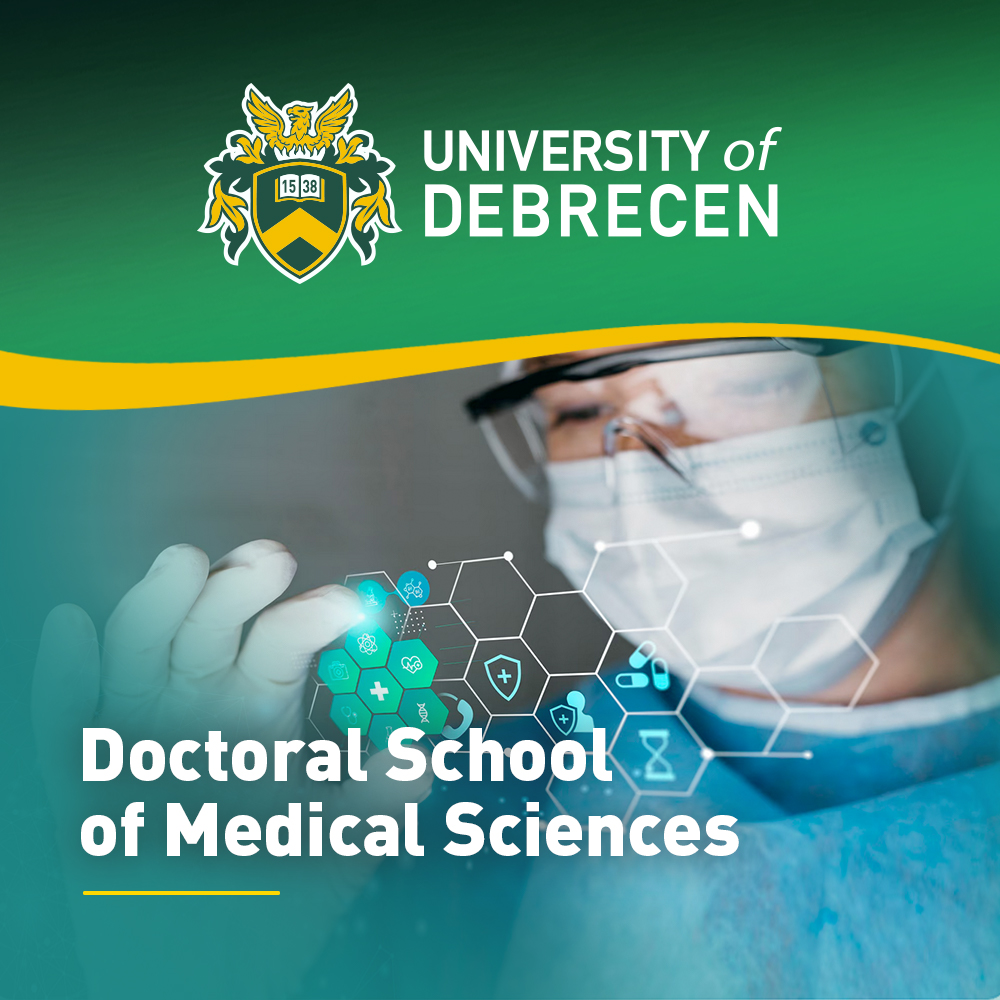For Applicants
For Current Students
Research
About UD
Practical Info and Contacts
 Faculty: Doctoral Committee of Medical Sciences
Faculty: Doctoral Committee of Medical Sciences
Starting date: September/February
Duration: 8 semesters
Language requirements: Level B2 by CEFR
Academic requirements: MSc degree (biology, physics, chemistry, biology, molecular biology, biotechnology or other relevant field) or Doctor of Medicine/Dentistry/Pharmacy degrees
Entrance exam description:
A statement by the supervisor and a research plan are mandatory. The research plan should describe the basics of the research, the aims of the research, and the methods used.
The Doctoral School (DS) examines the eligibility of applicants in a two-step system:
1. Committee of the DS examines the submitted documentations and decides whether the applicant will be further interviewed. Criteria: diploma grade, grades of subjects related to the research field, previous scientific activity (publications, presentations, posters), research plan, motivation letter, language skills.
2. Professional knowledge and scientific plans of the applicant are examined/assessed during a personal (online) interview. Based on the interview the DS will decide whether the application can be accepted or not.
Overview:
The Doctoral School of Medical Sciences coordinates the activities of 22 doctoral programs within the broader field of medical and health sciences.
Doctoral training is organized across four scientific disciplines:
The training and research portfolio of the Doctoral School are diverse and multidisciplinary, encompassing a wide spectrum of topics, including: public health; preventive medicine; epidemiology; the management and control of metabolic and endocrine disorders; genetic epidemiology; experimental oncology; behavioral sciences; health psychology; complex rehabilitation; dental sciences; clinical medicine; microbiology; pharmacology; pharmaceutical chemistry; pharmaceutical technology; pharmacognosy and phytotherapy; theoretical and clinical neuroscience; allergology; dermatology; immunology; infectious diseases; diagnostic imaging; pulmonology; rheumatology; tumor immunology; thrombosis and hemostasis; hematology; vascular biology; cardiology; the investigation of signal transduction pathways in excitable and non-excitable cells from biophysical, biochemical, and physiological perspectives; medical imaging; molecular biology; cell biology; genetics; lifestyle and health; the interplay between nutrition and health; disease prevention and therapy through nutritional interventions; food biotechnology; food waste management; and microbiome research.
Programme structure:
The duration of doctoral studies is 2+2 years (8 semesters).
Year 1-2: course work and research stage
Complex examination
Year 3-4: research and dissertation stage
Absolutorium, pre-defense
Dissertation and defense process
More information:
Contact:
Dr. Eszter Csoma, ODT admin of doctoral school